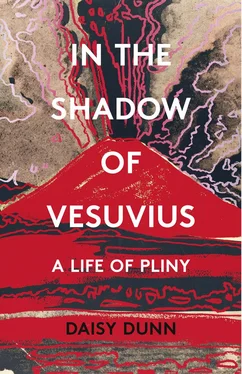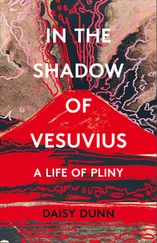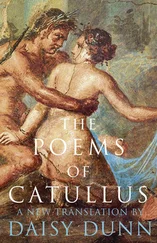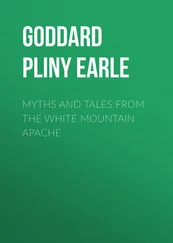Pliny the Elder was in the midst of a discussion of insects when he paused to confess, ‘I am forever watching Nature and persuaded to think that nothing about her should be deemed impossible.’ 50In many ways a testament to that thought, his encyclopaedia was a celebration of the peculiarities of Nature over the corrupting influences of materiality. Wealth in this period was concentrated in the hands of the varied few (senators, equestrians, fortunate freedmen – former slaves), but Pliny the Elder still feared for the damage it might cause the wider world.
Perhaps the most vivid symbol of temptation and human corruptibility in the encyclopaedia was the oyster. Pliny the Elder returned to it often, revealing its qualities and health benefits as well as its dangers. He had seen men plunder the earth for gold and gems as well as oysters and feared for the earth’s future stability. If fire, war and general collapse did not lead to the destruction of the world, then he believed that man’s greed would. 51He witnessed emperors construct monumental edifices, Nero’s Golden House with its revolving dining room epitomising the needless opulence to which the affluent might aspire. Meanwhile, treasures were being carried home from overseas and whetting – or so he imagined – Roman appetites for even more. Pliny the Elder recognised that ‘globalisation’ could bring improvements, particularly in knowledge, but also challenges. Just as we have come to realise that technologies and antibiotics can be destructive when we rely too heavily upon them, he believed that the easy availability of resources and foreign medicines would weaken Rome.
In his Natural History he encouraged his readers to preserve the natural world from destruction by explaining how it could help them. Concerned that knowledge of the healing properties of plants was by now broadly confined to ‘the rustics and illiterate’, he had undertaken to study as many specimens as he could first hand to describe to his more urban readers. ‘With the exception of a few,’ he inspected them under Antonius Castor, ‘the greatest authority in that art in our age’, who lived beyond his hundredth birthday. 52Pliny the Elder enjoyed some success in his mission to promote natural remedies over strange concoctions from the East. Many of his treatments and cures would be extracted and republished as early as the fourth century as the Medicina Plinii. Structured predominantly ‘ a capite ad calcem ’ – from head to heel, an arrangement that became standard in medieval medicine books – the Medicina Plinii survived into the fourteenth century and beyond and was even known in medieval England. Several guides from this date recommended the wearing of amulets made from animal body parts to prevent pregnancy. Contraceptive advice found in Pliny the Elder’s Natural History included the insertion of parasites from a spider’s head into a deer hide worn on a woman’s arm. 53
In his uncle’s writings, therefore, Pliny inherited not only his pearls of wisdom, but also his warnings against the destructive forces of wealth and greed. Pliny was descended on both sides of his family from the Comum elite. Estimated to have been twice as wealthy as the average senator, he was forever at risk of descending into the life of luxury that his uncle had censured. 54But while Pliny was not immune from indulging in his wealth, he recognised that there was more to life. He is often at his most interesting in his letters when pondering the sort of life he wants to lead. While perennially attracted to the idea of a quiet retirement spent enjoying books, baths and country air, he also savoured the spice of Rome and had ambitions of becoming a famous poet. In addition to the agricultural estate that he inherited from his uncle, he had a home on the Esquiline Hill in Rome, another on Italy’s west coast, and several in his native Comum. He was forever darting between the city, coast, countryside and lake and adapting his daily routine to each. It felt as natural to him to change houses and rooms through the year as it did to the Roman general who asked Pompey the Great, ‘Do I seem to you to have less common sense than the cranes and storks and thus not to change my living arrangements in accordance with the seasons?’ 55Believing that a man is happiest when he can be confident that this name will live forever, Pliny was strategic in the ways he divided his time. The problem was that he wanted eternal fame and daily contentment. His life would be in many ways an exercise in how to achieve both.
Pliny published most of his letters in his lifetime and arranged them himself, not chronologically, but ‘however they came to hand’. 56The opportunity to cast himself in the best possible light was not one he always took. It is impossible to tell what Pliny added to his letters during the process of editing, but some of what he took out is obvious. There are no addresses, no measurements for the buildings he commissioned, and – most noticeably of all – no dates. Some of the letters can be dated on internal evidence, but a significant proportion of them cannot. 57If we can wager a reason as to why Pliny ensured that they could never be arranged in precise chronological order, it would be that he wanted his life to be seen for the unpredictable journey that it was. Read out of order, his letters evoke a life of ups and downs, uncertainties, and questions rather than certain progress. How does one survive when all around are falling? Is suicide ever the best course? What separates necessity from excess? Pliny does not always find the answers, but he has a way of opening minds to the unexpected.
PART TWO
TWO
Illusions of Immortality
I have not yet, indeed, thought of a remedy for luxury. I am not sure that in a great state it is capable of a remedy, nor that the evil is in itself always so great as it is represented.
Benjamin Franklin, On Luxury, Idleness, and Industry, 1784
Pliny counted the historian and lawyer Cornelius Tacitus among his close friends. Born around AD 56, probably in southern Gaul, in the region of modern Provence, Tacitus was five, perhaps six years Pliny’s senior and, as Pliny noted, ‘exceptionally eloquent’. 1He wrote a study of Germania and a piercing account of the second half of the first century before embarking upon his celebrated Annals of the early Roman emperors. He was also a couple of steps ahead of Pliny on the senatorial ladder. Although Pliny did not consider himself a historian, he saw in Tacitus someone he would do well ‘to imitate’. He told Tacitus that they were of a similar nature and that, if he could only follow in his successes, then he might achieve his dream ‘to be considered “second best but by a long way”’ to him. 2The quote came from Virgil’s Aeneid and described the position of a Trojan soldier in a footrace. Competitive and admiring in equal measure, Pliny would write more letters to Tacitus over the course of his life than to anyone else except the emperor Trajan, to judge from what survives.
The lives of Pliny and Tacitus frequently crossed. After he lost his father as a boy, Pliny was appointed a mentor, Corellius Rufus – a senator he ‘always referred everything to’ – and a legal guardian, Verginius Rufus. When Verginius passed away many years later, at the age of eighty-three, it was Tacitus who delivered his funeral oration. Pliny was still grieving when he went to hear it. ‘I think of Verginius,’ he confessed, ‘I hear him and talk to him and I hold him.’ He had known Verginius almost his whole life. His native Comum bordered Verginius’ Mediolanum (Milan), and their families owned adjoining property. 3A successful military man, Verginius had thrice been consul and might even have been emperor, had he heeded popular pleas to accept the role at the end of Nero’s reign. To Pliny he had been less a hero than a guiding light, showing him ‘the affection of a father’ and helping him as he embarked upon his career before resuming an honourable retirement on the coast of Etruria in Italy. ‘He read the poems which were written about him,’ recalled Pliny, ‘he read histories, and was part of his own posterity.’ 4Such scrolls, however, could be heavy, especially for an elderly man. It had been Verginius’ misfortune to drop a scroll on a polished floor, slip, and fracture his hip while attempting to retrieve it. The injury weakened him and he died.
Читать дальше












